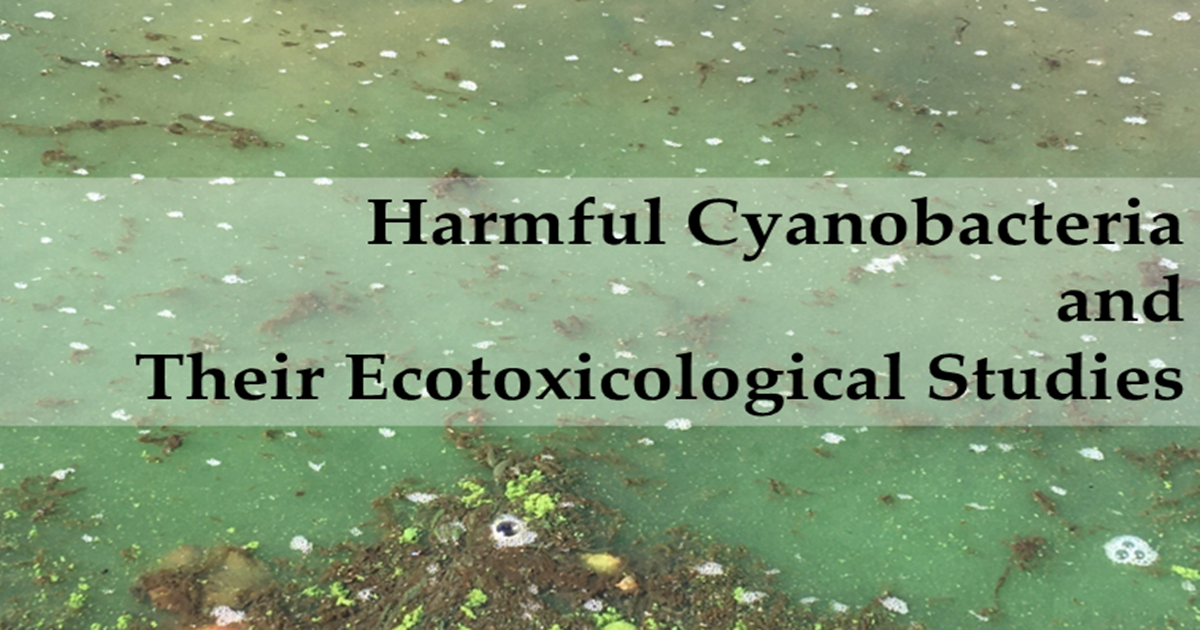Harmful Cyanobacteria and Their Ecotoxicological Studies
A special issue of Water (ISSN 2073-4441). This special issue belongs to the section "Water Quality and Contamination".
Deadline for manuscript submissions: closed (31 October 2023) | Viewed by 5121

Special Issue Editors
Interests: aquatic cyanobacteria; terrestrial cyanobacteria; bioactive compounds; detection methods; exposure assessment; bioaccumulation
Special Issues, Collections and Topics in MDPI journals
Special Issue Information
Dear Colleagues,
Every year, especially in the summer, many water environments experience cyanobacterial blooms that cause various problems for the functioning and balance of the ecosystems. At the same time, cyanobacteria perform important ecosystem services in both aquatic and terrestrial ecosystems. In this Special Issue, we seek contributions that bring new insights into cyanobacteria-related ecotoxicological research. Examples of such studies are 1) quantitative analyses and exposure assessments concerning toxic/harmful/bioactive cyanometabolites in aquatic and terrestrial environments, especially research related to less frequently studied species of cyanobacteria and less studied environments; 2) ecotoxicological assessments of toxic cyanobacteria and cyanotoxins as well as studies of synergistic effects involving cyanotoxins; 3) studies describing the effects of environmental and genetic factors on the distribution, performance, and harmfulness of cyanobacteria; and 4) perspectives on the harmful vs. beneficial aspects of cyanobacteria in various ecosystems.
Dr. Jussi Meriluoto
Dr. Łukasz Wejnerowski
Guest Editors
Manuscript Submission Information
Manuscripts should be submitted online at www.mdpi.com by registering and logging in to this website. Once you are registered, click here to go to the submission form. Manuscripts can be submitted until the deadline. All submissions that pass pre-check are peer-reviewed. Accepted papers will be published continuously in the journal (as soon as accepted) and will be listed together on the special issue website. Research articles, review articles as well as short communications are invited. For planned papers, a title and short abstract (about 250 words) can be sent to the Editorial Office for assessment.
Submitted manuscripts should not have been published previously, nor be under consideration for publication elsewhere (except conference proceedings papers). All manuscripts are thoroughly refereed through a single-blind peer-review process. A guide for authors and other relevant information for submission of manuscripts is available on the Instructions for Authors page. Water is an international peer-reviewed open access semimonthly journal published by MDPI.
Please visit the Instructions for Authors page before submitting a manuscript. The Article Processing Charge (APC) for publication in this open access journal is 2600 CHF (Swiss Francs). Submitted papers should be well formatted and use good English. Authors may use MDPI's English editing service prior to publication or during author revisions.
Keywords
- allelopathy
- cyanometabolites
- cyanoHABs
- cyanobacterial biogeography
- cyanotoxin bioaccummulation
- ecosystem services
- ecotoxicology
- invasive cyanobacteria
- water quality
Benefits of Publishing in a Special Issue
- Ease of navigation: Grouping papers by topic helps scholars navigate broad scope journals more efficiently.
- Greater discoverability: Special Issues support the reach and impact of scientific research. Articles in Special Issues are more discoverable and cited more frequently.
- Expansion of research network: Special Issues facilitate connections among authors, fostering scientific collaborations.
- External promotion: Articles in Special Issues are often promoted through the journal's social media, increasing their visibility.
- Reprint: MDPI Books provides the opportunity to republish successful Special Issues in book format, both online and in print.
Further information on MDPI's Special Issue policies can be found here.






